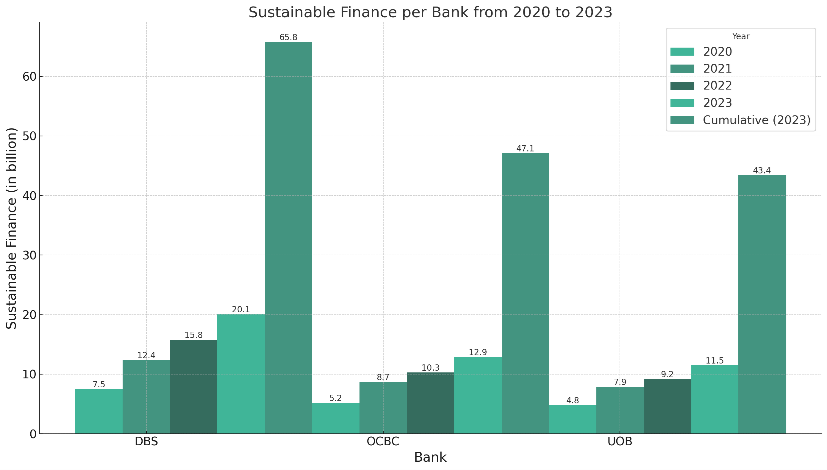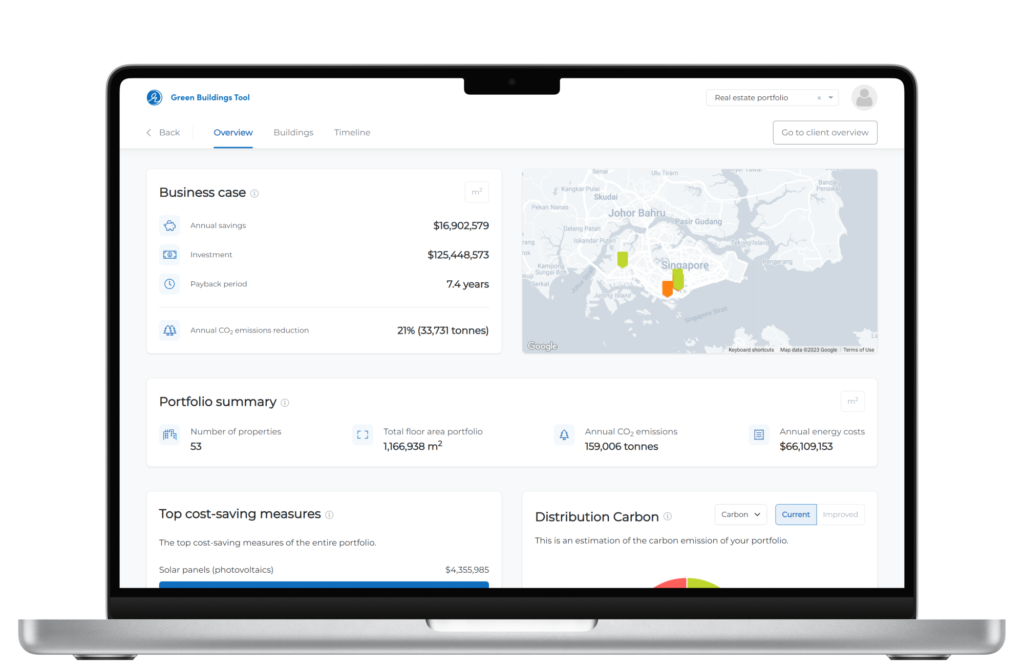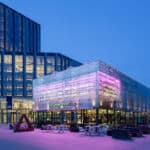
Going green in Singapore: a selection of banks and their sustainability commitments
Singapore, a global financial hub, is also aiming to become a leader in green finance. This ambition is reflected in its banking sector, where several banks are actively tackling climate change through their own operations and their support for sustainable businesses. But which banks are leading the way in sustainability? This article delves into the approaches of three prominent banks in Singapore’s, focusing on their commitment to mitigating Scopes 1, 2, and 3 emissions.
DBS Bank, OCBC Bank and UOB Bank
DBS Bank: A pioneer in net-zero banking, DBS joined the Net-Zero Banking Alliance and aims to achieve net-zero financed emissions by 2050. They’ve already achieved carbon neutrality for their own operations in 2022, showcasing their commitment to walking the talk. DBS is also proactive in Scope 3, offering sustainability-linked loans and trade finance with goals tied to clients’ emissions reduction. Their real estate initiatives are equally impressive, with DBS Newton Green becoming the first net-zero bank building in Singapore.
OCBC Bank: While they aim for net-zero by 2040, OCBC’s leadership in Scope 2 is undeniable. They’re leading among Singapore banks in renewable energy procurement, significantly reducing their operational footprint. OCBC also demonstrates strong engagement with Scope 3, developing tools and frameworks to assess and manage their customers’ emissions. Their real estate strategy focuses on investing in green buildings and upgrading existing properties for energy efficiency.
UOB Bank: Committed to both the Paris Agreement and the Science Based Targets Initiative, UOB is a champion of climate action. They’re rapidly increasing their use of renewable energy, aiming for 100% by 2025, and are actively collaborating with customers to measure and reduce their emissions. UOB’s real estate strategy involves partnering with developers on green buildings and promoting green leases, encouraging sustainable practices throughout their portfolio.

DBS1, OCBC2 and UOB3
Addressing carbon emissions in real estate
Real estate is a significant contributor to carbon emissions in Singapore. The leading banks have adopted various strategies, such as providing green mortgages, financing energy-efficient projects, and advising clients on sustainability practices. These initiatives not only aid in reducing the carbon footprint of the real estate sector but also align with Singapore’s national sustainability goals.
Challenges and the road ahead
Despite the progress, challenges remain. Robust Scope 3 measurement and management are complex, requiring data transparency and collaboration between banks and their customers. Innovative financial products and services are also needed to support clients’ transition to low-carbon businesses.
Our Green Buildings Tool supports sustainability tracking and carbon reporting
The measurement and management of sustainability can be challenging. The Green Buildings Tool helps an increasing number of banks in addressing this challenge by providing simple, large-scale, and specific insights into sustainability. Entire portfolios, as well as individual objects can be processed. Our tool recognises the type of property, retrieves the EPC and sustainability or carbon score, identifies the most relevant sustainability measures, and calculates the business case for the entire portfolio and per building or house.

Sustainability efforts allow businesses to demonstrate their leading role in the sustainability agenda, and the Green Buildings Tool provides a solution for sustainability reporting, as it offers insights into current and potential carbon emissions and energy efficiency. This allows financial institutions to set sustainability targets and comply with PCAF and other reporting standards, as well as use the Tool alongside CRREM assessments.
Feel free to reach out for a free demo to see how we can add value to your business and make a global impact.
- – https://www.dbs.com/sustainability/reports-and-disclosures/default.page
– https://www.dbs.com/sustainability/default.page ↩︎ - – https://www.ocbc.com/iwov-resources/sg/ocbc/gbc/pdf/ocbc-sustainability-report-2022.pdf
– https://www.ocbc.com/group/sustainability/sustainability-strategy.page ↩︎ - – https://www.uobgroup.com/investor-relations/financial/group-annual-reports.html
– https://www.uobgroup.com/sustainability/index.page ↩︎



